Class Structure
Description
This is a foundation course on learning modern C++ language (C++ 11 and beyond).
This course covers object-oriented programming using modern C++. Because most automation, embedded applications, gaming, and many large data processing applications are written in C++, it is essential that software developers understand and master it. Hardware engineers are increasingly using C++ and OOP in system verification tasks, and as of the current decade, there has been a noticeable shift from C to C++ on microcontroller systems.
This course offers an excellent foundation in developing optimized modern C++ applications. The participants will learn to write faster and modular code, and the debugging techniques, for real-world applications. There will be assignments and exercises to accompany the lectures.
Learning Outcomes
At the conclusion of the course, you should be able to:
- Modern C++ (post C++11)
- Apply object oriented concepts to software development problems using modern C++
- Understand and use the basic programming constructs of C++
- Manipulate various C++ data types, such as arrays, strings, and pointers
- Write C++ code using principles of object-oriented programming
- Understand design patterns in C++ using singleton pattern
- Manage memory appropriately, including proper allocation/deallocation procedures using unique and smart pointers
- Best practices (dos and don'ts)
- Utilize best practices from C++ GSL or Google Abseil libraries
1. Introduction
- Setup development environment
- Basics of Docker and container management
- Review class structure
- Operating System Fundamentals: Linux, Mac, POSIX, RTOS
- Modern approach to "manpages"
- SSH and password-less login
- System Monitoring:
top,df - Homework: Operating Systems and POSIX
2. Basic Syntax & Functions
- Basics
- Types, strings
- Control structures
- Declare and define functions
- Call by value, reference, pointer
- Overloading
- Default parameters
3. Object Oriented Basics
- Classes and objects
- Constructors and destructors
- Inheritance
- Rule of 3
- Introduction to unique_ptr
4. Operators & Templates
- Operators (=, [], *, -> etc.)
-
STL library containers
- Iterators
- Templates and the need for header only code
5. Midterm
- Review Questions
- Feedback
- Streams
- Chrono
- Exam
6. Object Oriented Advanced
- OO Inheritance
- Abstract classes
- Virtual and pure virtual functions
- Virtual destructors
- Polymorphism
7. Smart Pointers
- Unique pointer
- Shared pointer
- Weak pointer
8. More Advanced Topics
- Lambdas
- How it can be used
- Concurrency
- Threads
- Mutexes
- Condition Variables
- Deadlock Empire
9. Powerful Libraries
- Libraries
- Boost
- Guideline support library (GSL)
- Abseil
- Design patterns
- Singleton
10. Final Examination
- Review Questions
- Collect Feedback
- Exam
